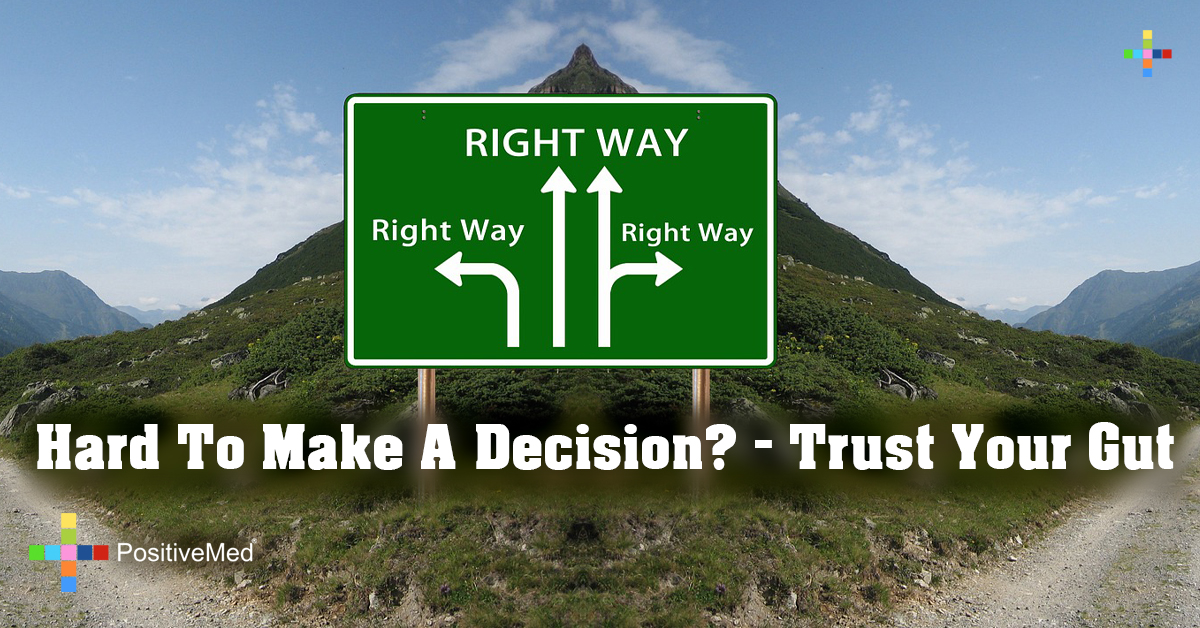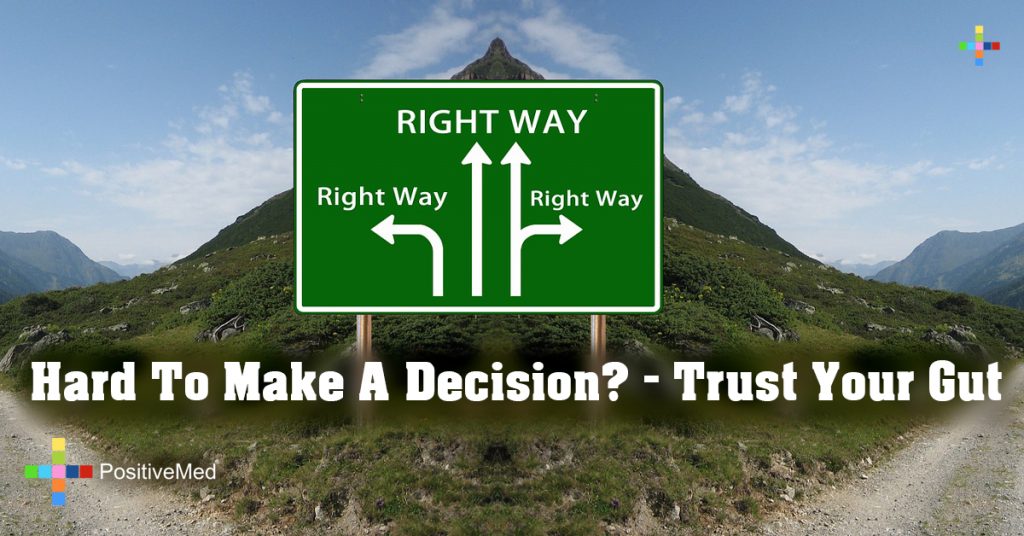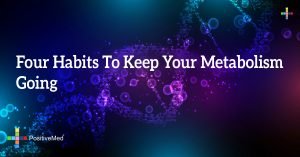
Hard To Make A Decision? – Trust Your Gut
Although it isn’t 100 percent reliable, following your gut is often the best way to make a quick decision, especially when under duress. For example, if someone is pressuring you to “Buy Now!” and that feels bad to you in ways you cannot explain, a good answer is “No, thank you.”
Emotion plays a significant role in memory formation. Typically, people with low effect (not much emotion) have trouble making snap decisions. More emotional people are usually better at making them. One of the functions of emotion is that it serves to give us access to a great deal of content stored in the recesses of our minds and it does so in a nutshell. It sums up great many things in the blink of an eye.
It is similar to the principle that “A picture is worth a thousand words.” How we feel about something gives us a signal to act upon quickly, without having to think upon the subject at length.
Thus, when we ignore our “gut instinct” – which is the first thing we feel in reaction to a particular thing or topic – we ignore highly valuable, dense information about our lived experiences. How we feel at that moment draws upon many years of experience with a wide variety of related subjects.
Unsurprisingly, there are many situations in which the first, most immediate reaction is a superior response to a longer, more drawn out decision-making process that examines the pros and cons. This has been studied at some length. There are certainly situations where our initial reaction or instincts fail us. But, there are also a great many where a gut reaction is downright life-saving.
RELATED ARTICLE: What Your Facial Profile Reveals About Your Personality
When a person is in danger and must act quickly, there is no time to do a great deal of analysis. For certain kinds of triggers, the body will simply react, even before conscious thought kicks in. People have reported jumping into a river to save a small child before they knew why they jumped. The critical information caused them to act literally before they had time to think. This is known as the amygdala hijack.
Our bodies and brains have evolved over millions of years. Thus, it should not seem strange that, over a long period of time, our species developed shortcuts to making good decisions at critical moments. Generally speaking, taking advantage of these shortcuts is a good practice for keeping us alive in the face of danger or minimizing harm when faced with a situation where there are no good options.
If you have all the time in the world to examine a question, study it and decide at leisure, of course, it is entirely possible to improve upon the decision. But, when time is of the essence, especially when there is danger involved, trusting your first instinct has good odds of being the best answer that you can come up with.
In the military, where lives are so often at stake, people say “Sometimes, a 90 percent solution now is better than a 100 percent solution later.” Trusting your gut instinct is the mechanism that gives you that “good enough” answer in a timely fashion.






